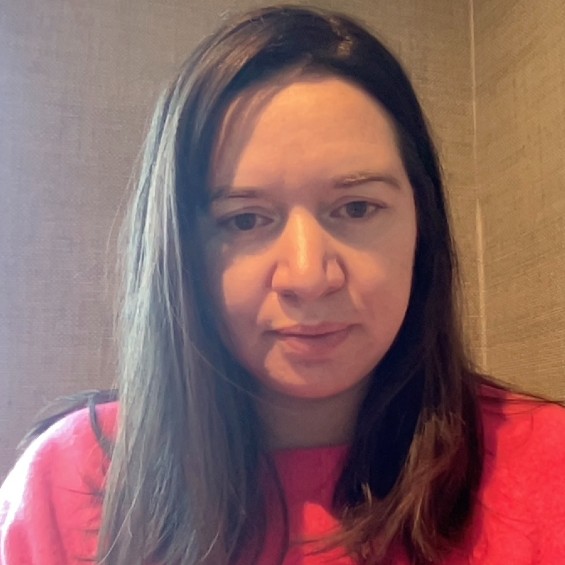Heather Reichmuth, PhD
Assistant Professor of Teacher Education

Bailey Hall, Room 501, Gorham Campus
Education
- PhD Curriculum, Instruction, and Teacher Education; Michigan State University
- MAT, Teaching English to Speakers of Other Languages (TESOL); University of Southern California
- BA., Literature, Purchase College, State University of New York
Research Interests
My research interests center on multilingual learners and their families. I am interested in how parents support their children’s multilingualism in the home to help teachers better understand how to support multilingual learners in the classroom. I am also interested in global perspectives of education and how we can apply a global mindset to our classes here in the U.S. to create a more supportive environment for our culturally and linguistically diverse students while also creating globally minded citizens in all learners.
Prior to earning my PhD at Michigan State University I taught English for 15 years in South Korea. Although I primarily taught high school and university age students, I had the opportunity to teach students from pre-school through middle school as well. Being in an international setting, I was also fortunate to teach students from all over the world. I taught students from countries such as Angola, Saudi Arabia, Turkey, France, China, and Uzbekistan to name a few.
Expertise
Multilingual Language Learners, Multilingual Families (Family Language Policy), Bi/literacy, Pre-service Teachers, Global Perspectives of Education.
Selected Publications
- Edwards, P.A., Reichmuth, H.L., & Cardenas, L.C. (accepted). Centering teacher narratives for the equitable teaching of culturally and linguistically diverse learners. Multicultural Perspectives.
- Reichmuth, H.L. & Chong, K.L. (accepted). Teaching Asian American contributions to the civil rights movement through children’s literature. Social Studies and the Young Learner.
-
Kim, T., & Reichmuth, H.L. (2021). Exploring cultural logics in teacher learning: Collaborative autoethnography on transnational teaching and learning. Professional Development in Education, 47(2-3), 257-272.
- Gordon, R.R., Reichmuth, H.L. Her, L., & De Costa, P.I. (2021). Thinking beyond "languaging" in translanguaging pedagogies: Exploring ways to combat white fragility in an undergraduate language methodology course. In U. Lanvers, A.S. Thomson, & M. East (Eds.) Language Learning in Anglophone countries: Challenges, practices, solutions. London: Palgrave Macmillan.
- Reichmuth, H. L. (2020). Language Investment of white native English-speaking wives in transnational marriages in Korea. I-LanD Journal: Identity, Language, and Diversity, 67-86.
- Reichmuth, H. L. (2020). [Review of the book, Connecting school and the multilingual home: Theory and practice for rural educators by M. R. Coady]. Bilingual Research Journal, 43(2), 236-239.
- Troia, G.A., Brehmer, J.S., Glause, K. Reichmuth, H.L., & Lawrence, F. R. (2020). Direct and indirect effects of literacy skills and writing fluency on writing performance across three genres. Education Sciences 10(11), 297.
- Reichmuth, H.L. & Paek, J. (2019, November). Teacher it’s Me!!-Formal Email Writing. Teaching English to Speakers of Other Languages, TESOL Connections.

Bailey Hall, Room 501, Gorham Campus
Education
- PhD Curriculum, Instruction, and Teacher Education; Michigan State University
- MAT, Teaching English to Speakers of Other Languages (TESOL); University of Southern California
- BA., Literature, Purchase College, State University of New York
Research Interests
My research interests center on multilingual learners and their families. I am interested in how parents support their children’s multilingualism in the home to help teachers better understand how to support multilingual learners in the classroom. I am also interested in global perspectives of education and how we can apply a global mindset to our classes here in the U.S. to create a more supportive environment for our culturally and linguistically diverse students while also creating globally minded citizens in all learners.

